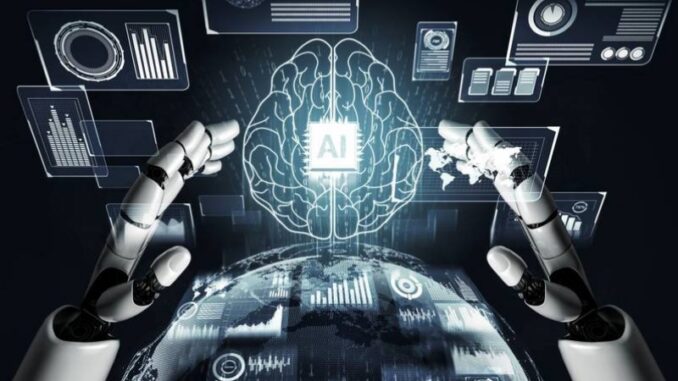
Artificial Intelligence (AI) has become a cornerstone of modern information technology, significantly influencing various
sectors and transforming how businesses operate. Here’s an overview of AI’s role in contemporary IT:









1. Data Analysis and Management
Big Data Processing: AI algorithms, especially machine learning (ML) models, can process vast amounts of data quickly, identifying patterns and insights that would be impossible for humans to discern.
Predictive Analytics: AI systems can forecast trends based on historical data, aiding in decision-making processes for businesses and organizations.
Data Security: AI helps in detecting and responding to cybersecurity threats by analyzing network traffic patterns and identifying potential breaches.
2. Automation
Robotic Process Automation (RPA): AI automates repetitive tasks, such as data entry and customer service responses, improving efficiency and reducing human error.
IT Operations: AI systems can monitor and manage IT infrastructure autonomously, identifying and resolving issues without human intervention.
3. Personalization
Customer Experience: AI-driven recommendation engines personalize user experiences on e-commerce platforms, streaming services, and social media.
Marketing: AI analyzes consumer behavior to tailor marketing strategies, enhancing engagement and conversion rates.
4. Natural Language Processing (NLP)
Chatbots and Virtual Assistants: AI-powered chatbots provide 24/7 customer support, handling inquiries and performing tasks such as booking appointments or processing orders.
Language Translation: AI systems like Google Translate have significantly improved, providing more accurate translations and enabling cross-language communication.
5. Decision Support Systems
Healthcare: AI assists in diagnosing diseases, suggesting treatment options, and predicting patient outcomes based on medical data.
Finance: AI models evaluate financial risks, detect fraudulent transactions, and optimize trading strategies.
6. Development and Testing
Software Development: AI tools assist developers by suggesting code completions, identifying bugs, and optimizing performance.
Quality Assurance: AI enhances software testing by automating test cases and improving coverage through intelligent test generation.
7. Innovation in Emerging Technologies
Internet of Things (IoT): AI enhances IoT by processing data from connected devices, enabling smarter homes, cities, and industries.
Edge Computing: AI at the edge reduces latency and bandwidth usage by processing data closer to the source, essential for applications like autonomous vehicles.
Challenges and Considerations
While AI offers numerous benefits, it also presents challenges:
Ethical Concerns: Issues such as bias in AI algorithms, privacy invasion, and the impact on employment need addressing.
Security Risks: AI systems can be vulnerable to adversarial attacks, where malicious actors manipulate inputs to deceive the model.
Regulatory Compliance: Ensuring AI systems comply with regulations and standards is crucial, particularly in sectors like healthcare and finance.
Conclusion
AI’s integration into modern information technology is transformative, driving efficiency, innovation, and personalized experiences across industries. As AI continues to evolve, it will likely play an even more integral role in shaping the future of IT, emphasizing the need for ethical considerations and robust security measures to harness its full potential responsibly.
Leave a Reply